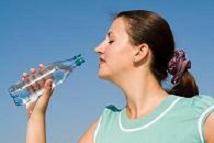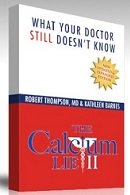|
Symptoms of Severe Dehydration
Why would you be worried about the symptoms of severe dehydration? How likely is that? I chose to use that heading because any dehydration is serious or severe. Even just a strong thirst when you wouldn't think of yourself as dehydrated can be serious. Most people are somewhat dehydrated all the time - a chronic condition they are probably not even aware of.
Of course, there are levels of dehydration just like other conditions. The point is to be aware of the symptoms of even the beginnings of dehydration symptoms. Then severe dehydration need not be a danger - as long as you do something about it.
And it is not as simple as adding a liter of oil to your car's engine when it is down. It's not just a case of topping up and all is fine. Your body is composed of trillions of cells and comes with several mechanisms to conserve and recycle water. If you are chronically dehydrated your body will have become adapted to run at a sub-optimum level in strict water-conservation mode. You will still be alive and functioning but not optimally. Start taking in adequate amounts of water and it will take time for your body to adjust to the greater supply. But, over time, it will and you will benefit with less pain and better health in many ways.
Chronic dehydration is actually a major, underlying cause of many common ailments. The symptoms of chronic dehydration may manifest as a variety of seemingly unrelated problems. Unless you are aware of it you may not even realize that the condition that is bothering you may, in many cases, be related to chronic dehydration.
For example, allergies and asthma can be symptoms of dehydration. Lack of water increases histamine levels, causing the release of the stress hormone cortisol which suppresses white blood cell production, increasing vulnerability to allergens.
Chronic dehydration may contribute to:
- aging prematurely
- blood pressure increases
- depression
- diverticulitis
- eczema (more-concentrated toxins irritate the skin)
- fatigue (from imbalance in acid/alkaline ratio)
- heartburn, gastro-esophageal reflux disorder (GERD)
- joint pain (cartilage is not well-lubricated)
- kidney stones
- obesity (many people confuse the thirst sensation with hunger)
- rheumatoid pain (toxins are not being flushed properly)
- urinary infections
There are
many other benefits to drinking enough water in addition to simply avoiding dehydration.
To emphasize that all dehydration is severe I am grouping the symptoms below into either "mild to moderate" or "serious" symptoms of "severe" dehydration.
Mild to moderate symptoms of severe dehydration:
- constipation
- dizziness or lightheadedness
- headaches
- mouth very dry
- skin becomes dry
- sleepiness, decreased activity
- tear supply becomes diminished, eye irritation
- thirst
- urination decreases - none for 3 hours for infants and 8 hours or more for older children
Serious (medical emergency - seek appropriate medical aid) symptoms of severe dehydration:
- blood pressure decreased
- breathing becomes more rapid
- delirium or unconsciousness
- eyes become sunken
- fever
- fontanels (soft spots on top of a baby's head) become shrunken
- irritability and confusion for adults
- mouth and mucous membranes become very dry
- pulse increases
- skin shriveled and dry; doesn't "bounce back" with pinch test
- sleepiness (with fussiness) in infants and children
- sweating ceases
- tears cannot be produced
- thirst is extreme
- urination basically ceases; if any, it is very dark yellow
Unfortunately, you don't come with a dehydration gauge. Thirst is not a reliable gauge of your need for water, especially in children and older adults. And if people normally do not get enough water their perception of the sensation of thirst may be dulled or misinterpreted.
A better indicator is urine color. Clear or light-colored urine means good hydration; dark yellow usually indicates dehydration. The exception can be first thing in the morning - if a person has not voided all night it is normal to have somewhat darker urine.
So if a person has some of these symptoms how do you know if it is dehydration and not another cause? Obviously, common sense and knowledge of the person and conditions will tell you something.
Conditions That Can Lead to the Symptoms of Severe Dehydration
The simple cause of dehydration, in many cases, is just not taking in enough water to replace what is lost and to get water levels to an optimum. Other factors that may contribute to dehydration include:
- Altitude, especially above about 2,500 meters, due to increased urination and more rapid breathing.
- Diarrhea and vomiting can cause a great loss of water (and electrolytes) in a short time.
- Exercise not just from the obvious sweating but also the increased respiration rate causes more fluid loss.
- Fever with the rate of dehydration increasing as the fever increases.
- Medications diuretics, antihistamines, blood pressure medications and some psychiatric drugs can contribute to dehydration, often by causing increased urination or perspiration.
- Sweating excessively especially in hot, humid weather. Cold winter weather can cause drying perhaps more slowly but also less perceptibly.
- Urination that is increased from uncontrolled diabetes mellitus which often causes increased thirst and more frequent urination. In diabetes insipidus, the kidneys are unable to conserve water.
Children and infants are more at risk because they are not as aware of the risk or the need to drink fluids. Older adults can also be at increased risk because of reduced ability to conserve water, less acute sensation of thirst, forgetting to drink, neglect by caregivers etc.
|
Keep up to date with
valuable insights into
pain management via
a healthy lifestyle.
Receive the monthly
Natural Pain Relief
Guide Newsletter.
News articles, health
tips, specials, freebies.
Enter your email and name
in the form to the right.
|
|
|










New! Comments
Have your say about what you just read! Leave me a comment in the box below.